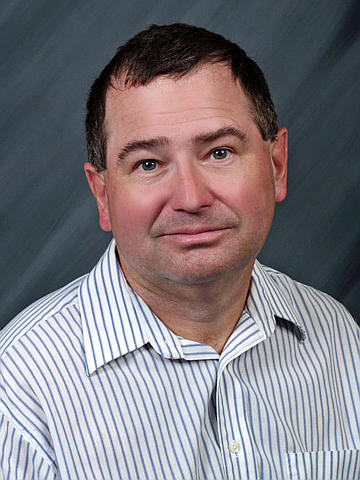Advanced Computing, Mathematics and Data
Staff Awards & Honors
July 2013
Ron Taylor Examines Synthetic Biology at Gordon Conference
Synthetic biology may "reprogram" life as we know it
Recently, Ronald Taylor, a staff scientist in CSMD's Computational Biology and Bioinformatics Group whose research often focuses on systems biology and bioinformatics, was accepted and attended a Gordon Research Conference examining synthetic biology.

Dr. Ronald Taylor
Synthetic biology, an emerging field that unites knowledge developed in biology, chemistry, and robotics adapted with Information Technology-based engineering design and production principles, aims toward the creation of artificial (i.e., "synthetic") and hybrid systems using biological engineering design principles with unprecedented power and efficiency.
The five-day Gordon Conference, (Re-)constructing and Re-programming Life, held in Vermont, featured a variety of presentations and in-depth discussion forums that spotlighted the challenges as well as potential scientific, technological, and economic impacts associated with the design and fabrication of new biological components and systems that do not currently exist in the natural world and the re-design and fabrication of existing biological systems. One day, synthetic biology may afford methodologies for devising cellular components, compartments, and cells to create living devices for use as molecular-scale "factories" that detect chemical weapons, clean up pollutants, make simple computations, diagnose diseases, deliver vaccines, produce water, or create new hybrid materials.
To earn his invitation, Taylor submitted his biography, which had to be vetted and approved by the Gordon Conference Chairs. Ongoing since the 1930s, the prestigious Gordon Research Conferences are known for addressing frontier areas of scientific research.
